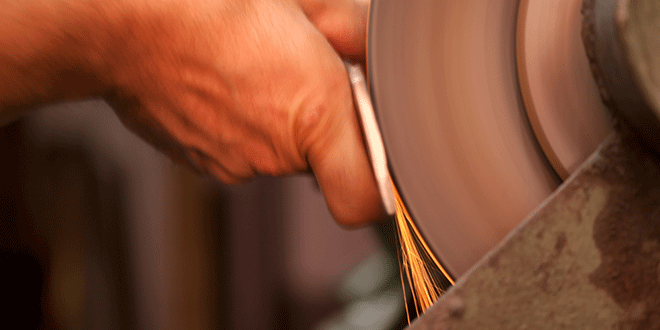
The Art and Science of Metal Polishing
Whilst the rest of the world is shifting toward automated work, there is still at least one field in the metalworking industry that requires meticulousness, patience, and a healthy balance between art and science: polishing.
When you are handling a polishing job, you have to be skilful and patient at the same time. Polishing is all about rendering final touches to your masterpiece. For this intricate task, you might have to use a range of different tricks and techniques depending on the workpiece’s complexity.
Learning the process
Remember that metal polishing means scratching its surface. A close inspection of an unpolished workpiece under a microscope would reveal irregular mountains and craters, similar to the geographical structure of the moon. Polishing removes these deformities to create a sleek, smooth finish.
The process is the same with any workpiece: coarse abrasives come first and refine the workpiece, followed by finer abrasives to smoothen the finish. Abrasives of very fine grain remove the materials on a molecular level, which calls for another medium to eliminate the loosened material.
Defining the notion of ‘smooth’
Smoothness is relative, and there are ways to define how smooth, smooth is. Dry blasting, be it via #24 oxide or #240 oxide, yields a lacklustre finish, with obvious roughness on it. Moving on to glass bead dry blasting results in satin-like finish.
As for stone, 320, 400, and 600 all produce low polish parts – which, even though it appears smooth, still has evident deformities in it. Medium polish is a state you usually get from the work of 320, 400, or 600 grit paper. The smoothest finish, which is very mirror-like, often comes from grades 3, 6, and 15 diamond.
Finding artistry in a scientific craft
While metalworking is a highly scientific trade with strong emphasis on precision, polishing is an artistic process. You would have to alter the moulds and make them scientifically accurate to change the output of a workpiece, which is something you can study. Polishing, however, is more of a skill you learn as you develop your craft. It may seem simple at first glance, but it has its own intricacies that take years to perfect.
At Winward Engineering Ltd., we specialise in providing metal products manufactured to perfection. We ensure the quality of our work and use our decades of experience to deliver the finest products to our clients. Talk to us and learn more about what we have to offer.





